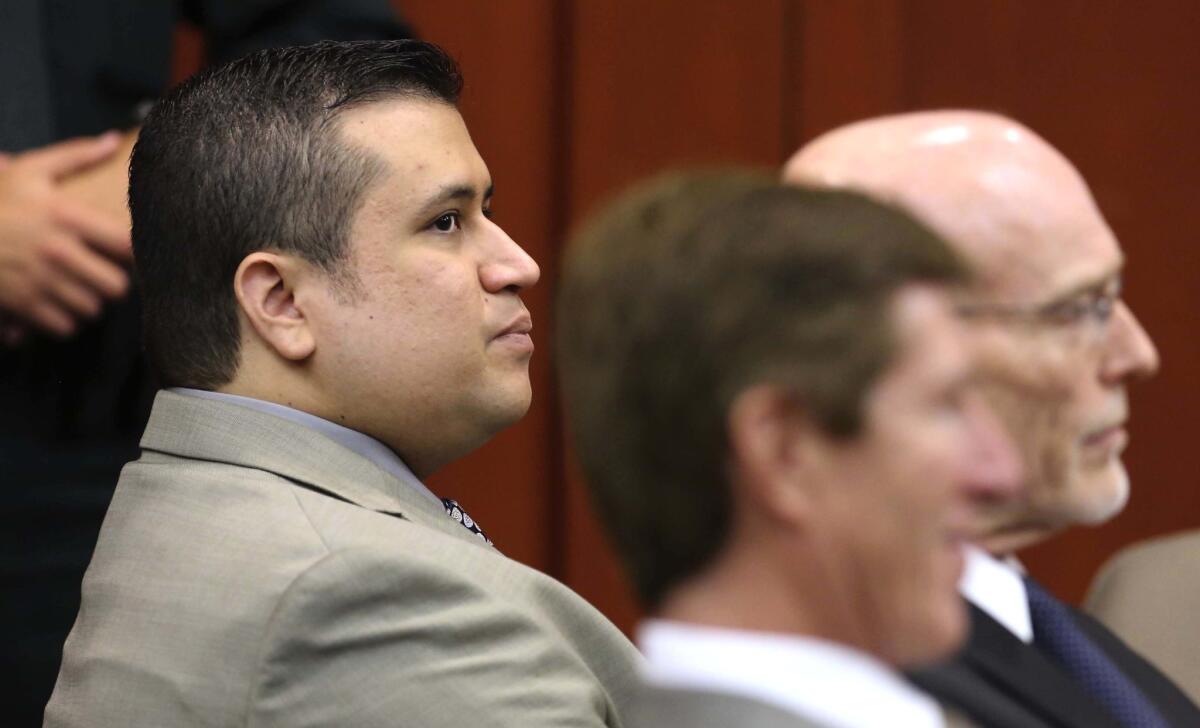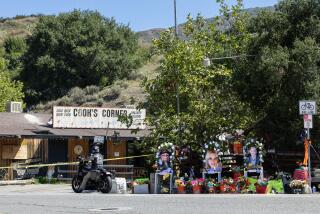Voice analysis of 911 call is at issue in George Zimmerman case

The case of George Zimmerman, the man charged with killing unarmed African American teenager Trayvon Martin, slogged its way through a preliminary hearing Thursday where technical issues such as expert testimony on voice analysis took center stage.
The hearing before Circuit Judge Debra S. Nelson in Florida will resume Friday.
Zimmerman, 29, is charged with second-degree murder in the shooting of Martin, 17, on the rainy night of Feb. 26, 2012. Martin was shot at a gated community in Sanford, Fla., by Zimmerman, who says he acted in self-defense after a confrontation. The prosecution argues that Zimmerman profiled the teenager because of his race.
The case, which inflamed racial tension and demonstrations in the area and across the country, is scheduled to begin with jury selection Monday. The defense and the prosecution on Thursday were trying to clear away some of the technical issues in preparation for the main event.
One of the more complicated, and potentially more important, issues involves a telephone call made to a 911 operator on the fateful night. The recording, played in court, has background sounds including what seems to be a scream of a few seconds just before the gunshot that killed Martin is fired.
The issue is who is making the sounds and what they mean. Broadly speaking, the prosecution and defense disagree on whether the scream is Martin’s seconds before his death, or Zimmerman’s during the confrontation.
But the legal battle is over the validity of the science -- particularly computer voice-matching -- used by the different experts in making their appraisals of what is going on in the recording. The defense argues that the prosecution’s experts are using untested science and shouldn’t be allowed to testify at all.
“I don’t think anybody has a system right now of comparing reasonable natural speech and come up with correct answers at this point in time,” Hirotaka Nakasone, a senior voice scientist for the FBI, testified.
But under cross-examination, Nakasone agreed that regardless of the technology, experts listening to the same audio often come to different conclusions. The prosecution witnesses are expected to testify Friday.
It was a long Thursday for lawyers since the hearing, broadcast over the Web, began at 9 a.m.
Much of the day was spent on a defense request to sanction the prosecution. The defense argues the prosecution lied when he told the court that all reports relating to Martin’s cellphone had been turned over to the defense. Judge Nelson eventually ended the debate saying the issue can wait until the murder trial is over.
Earlier, the judge denied a defense motion to keep some witnesses anonymous, by having them testify from behind a screen. The defense argued the screens were needed to protect the witnesses from retribution.
Both the state and lawyers for the news media argued against the request.
ALSO:
Philadelphia building collapse: Death toll stands at 6
Pennsylvania girl given opportunity for adult lung transplant
Tropical Storm Andrea delivers rain, 60-mph winds to Florida
More to Read
Sign up for Essential California
The most important California stories and recommendations in your inbox every morning.
You may occasionally receive promotional content from the Los Angeles Times.











